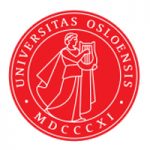项目介绍
About the course
The DPhil in Migration Studies, offered by the School of Anthropology and Museum Ethnography (SAME) and the Oxford Department of International Development (ODID), presents the unrivalled opportunity to undertake an interdisciplinary, in- depth project focused on a specific and contemporary challenge facing the world by drawing on world-class research departments, centres and scholars.
As a DPhil student you will undertake your own original research project under the guidance of your supervisor. Academics from SAME and ODID can offer supervision in a wide range of subjects. Examples include migrant integration, identity formation, transnationalism, urban change, diasporas, humanitarianism, asylum and refugees, citizenship, health and wellbeing.
You will also benefit from long established research and teaching programmes on migration, each with particular focus on collaborating with non-academics and generating research ‘impact’. The DPhil programme offers the opportunity to link research training to research practice at the two research centres: The Centre on Migration Policy and Society (COMPAS) and the Refugee Studies Centre (RSC).
Course structure
Most applicants are admitted as Probationer Research Students (PRS) and are expected to complete the degree in 3-4 years (6-8 years part-time). In the first year (the first two years in the case of part-time) students attend weekly PRS seminars which provide training in research and writing as well as research presentation and critique; during this period you will develop and begin work on your thesis topic. In their first year (first two years if part-time) students also attend the weekly ‘work-in-progress’ seminar at COMPAS and present their research in each. First year students also take at least two ‘methods modules’ courses chosen to complement their research interests from the wide range offered across the departments and can avail themselves of the many research training opportunities on offer in the Social Sciences Division and elsewhere in the University (eg the Oxford University Language Centre, IT Learning Centre). These requirements are spread over the first two years in the case of part-time students. You will also have the opportunity to attend lectures, seminars and classes in your topic area.
You are likely to have already completed appropriate research training at master’s degree level, either within Oxford or another university. There is a joint Quantitative Research Methods for Migration Studies course for master’s-level students on the MSc in Migration Studies and MSc in Refugee and Forced Migration Studies, and separate courses in qualitative methods. Graduates who have followed this route will therefore have completed the necessary training. Students new to Oxford can attend these research method courses if necessary. Supervisors will conduct a Training Needs Analysis to discuss the required skills and identify any gaps.
Students spend their second year (part-time: third and fourth years) gathering data as part of their original research. The nature of this varies considerably depending upon the research area and topic focus, from living with another population, to data gathering and analysis, for example. Its location will be dictated by the research focus and could be in Oxford or, in principle, anywhere in the world (subject to the usual health and safety considerations).
In their third year (part-time: fifth and sixth years) students write up their research thesis, and are encouraged to regularly attend weekly ‘work-in-progress’ seminars in which they present their developing work to their peers and staff for feedback; . Throughout the course DPhil students are strongly encouraged to attend the many research seminars, presentations and lectures on offer within the department and elsewhere in the University.
Supervision
The allocation of graduate supervision for this course is the responsibility of the School of Anthropology and Museum Ethnography (SAME) or Oxford Department of International Development (ODID) and it is not always possible to accommodate the preferences of incoming graduate students to work with a particular member of staff.
In some circumstances we could consider making a joint supervision arrangement and in that case one of the two supervisors may be found outside SAME or ODID.
In your first year (first two years if part-time) you will meet at least monthly with the your supervisor. You will then maintain regular (at least monthly) contact throughout the rest of the course with your supervisor for guidance while conducting your research.
The supervisor will help develop and guide your project and, at later stages, provide feedback on chapter drafts. However, you will work to a significant extent on your own, and you will need a high level of motivation and self-discipline.
Assessment
You will likely be admitted to the course as a Probationer Research Student (PRS), but in some cases Oxford MPhil students may be admitted directly with full DPhil student status.
If you are admitted with PRS status, you will have to apply to transfer to full DPhil student status by the end of the first year for full-time students or the end of the second year for part-time students. Students who are successful at transfer will also be expected to apply for and gain confirmation of DPhil status, to show that your work continues to be on track. Both milestones will involve submission of a c.20,000-word document and an interview with two assessors (other than your supervisor) and therefore provide important experience for the final oral examination. This will normally occur by the 9th term of full-time students and by the 18th term for part-time students.
The course is ultimately examined by the submission of a thesis and oral examination, after three to four years of full-time study, or six to eight years of part-time study.
Graduate destinations
The increasing importance of the issue of migration on the global stage means that there are multiple paths to future employment in academia – where migration is growing in importance, with the establishment of numerous migration-related programmes at universities around the world – but also with significant opportunities in national governments and multilateral organisations.
Oxford graduates in similar programmes have gone on to occupy key posts in leading institutions of international governance, including: UNHCR, Norwegian Refugee Council, European Council on Refugees and Exiles, IOM, ILO, and the European Commission.
Changes to this course and your supervision
The University will seek to deliver this course in accordance with the description set out in this course page. However, there may be situations in which it is desirable or necessary for the University to make changes in course provision, either before or after registration. The safety of students, staff and visitors is paramount and major changes to delivery or services may have to be made in circumstances of a pandemic (including Covid-19), epidemic or local health emergency. In addition, in certain circumstances, for example due to visa difficulties or because the health needs of students cannot be met, it may be necessary to make adjustments to course requirements for international study.
Where possible your academic supervisor will not change for the duration of your course. However, it may be necessary to assign a new academic supervisor during the course of study or before registration for reasons which might include illness, sabbatical leave, parental leave or change in employment.
For further information please see our page on changes to courses and the provisions of the student contract regarding changes to courses.
录取要求
-
a master’s degree with distinction or an overall grade of 67% or above and a distinction in the thesis element, in a relevant subject that includes appropriate research methods training; and
-
a first-class or strong upper second-class undergraduate degree with honours in any subject.
-
However, entrance is competitive and most successful applicants have a first-class degree and a master’s degree with distinction or the equivalent.
-
Applicants for the DPhil in Migration Studies will normally be required to have, or obtain, a taught-course qualification in a relevant social science subject before embarking on doctoral research.
联系方式
电话: +44 1865 270000相关项目推荐
KD博士实时收录全球顶尖院校的博士项目,总有一个项目等着你!






